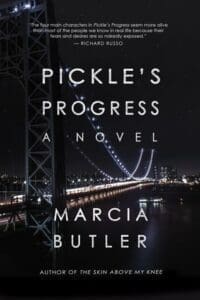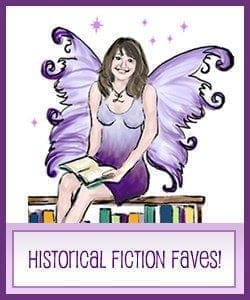Eternal Life by Dana Horn – 356 pages
Book Blurb:
Rachel is a woman with a problem: she can’t die. Her recent troubles—widowhood, a failing business, an unemployed middle-aged son—are only the latest in a litany spanning dozens of countries, scores of marriages, and hundreds of children. In the 2,000 years since she made a spiritual bargain to save the life of her first son back in Roman-occupied Jerusalem, she’s tried everything to free herself, and only one other person in the world understands: a man she once loved passionately, who has been stalking her through the centuries, convinced they belong together forever.
But as the twenty-first century begins and her children and grandchildren—consumed with immortality in their own ways, from the frontiers of digital currency to genetic engineering—develop new technologies that could change her fate and theirs, Rachel knows she must find a way out.
My Review: 4 stars
Eternal Life forces you to look at mortality through an entirely different lens. This book will make you think and it will stretch your mind. It’s a book that you’ll want to talk about, to unravel your thoughts. It’s about death and what happens if you can’t die.
This whole concept baffled me and I was in awe of the brashness and newness of such an idea. After Rachel, our protagonist, bargains with a high Priest to let her dying child live in exchange for her to never die. I’m sure at the time it seemed plausible, but Horn poetically shares the difficulty of such a bargain. Rachel watched friends, lovers, spouses, children and grandchildren die, while she continued on. With child after child, each in another generation or another era, she’s forced to learn new things, new technology new ways of living. The child she saved was Yochanen ben Zakkai, an important Jewish sage in the era of the Second Temple, and a primary contributor to the core text of Rabbinical Judaism, the Mishnah. By off chance I thought I’d google him, pretty certain he was fictional, but to my delight and surprise, he’s quite important in Jewish history.
A baby born as the prouct of an illicit love affair two thousand years ago was what began this journey. Rachel’s lover, Elazar, would suffer the same consequences in the bargain. Over the centuries, their surprise meetings were would produce the bitterness, love, hate, loss and loneliness they both feel. His last visit he is worried for Rachel and Rachel is worried as well, as her granddaughter, who works at Google, is studying genes and aging. Their quest is to find out how to live forever or how to not die. Rachel knows how horrific this would be, living forever, yet can’t let her granddaughter know her truth, her history. Who would ever believe her? She’d be bound in a psyche ward forever. I found this part of the present day interesting, but her other children and grandchildren were not at all captivating. They actually annoyed me, as did their storylines. It compromised my rating, but overall, the story still left me staggered as I tried to wrap my head around this concept.
Quotes I liked:
When you live like we do, everything seems connected to everything else, everything reminds you of something.”
“He realized he had become superfluous. Which in fact was the entire purpose of life, to live in such a way that one made oneself superfluous. And therein lay the root of the problem. There was no point in any of it, none at all, unless one had plans to leave.”
“That’s the problem. We don’t grow. We’re like an old book, full of stories and also full of errors, and no one can completely understand us, even though many people try. But the problem is that we don’t change. Only the people around us change.”

















